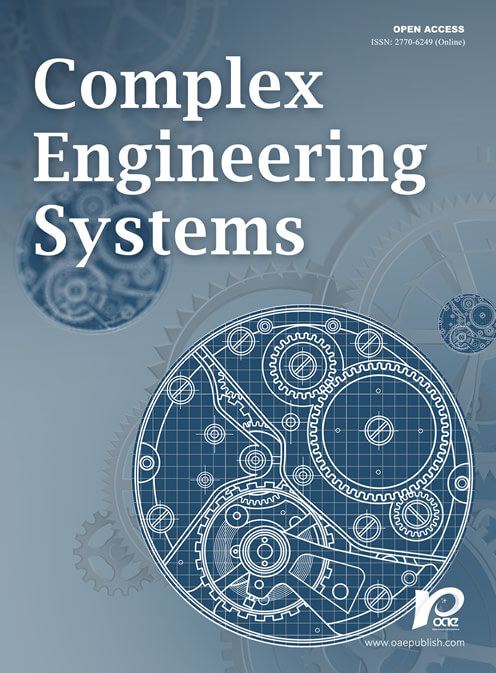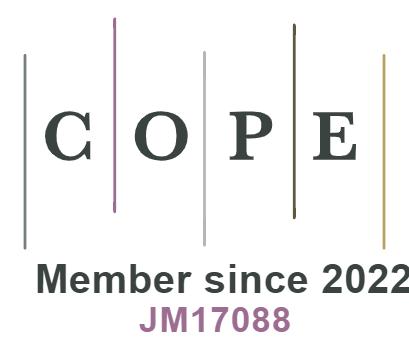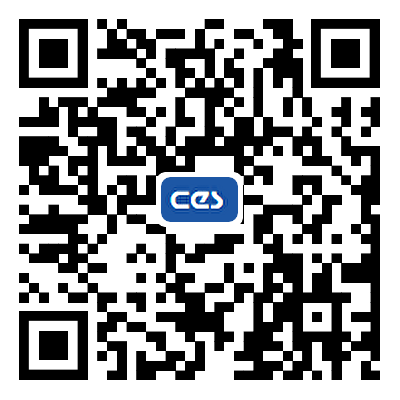REFERENCES
1. Liao W, Wei XH, Lai JZ, Sun H. Formation control for multi-UAVs systems based on Kullback-Leibler divergence. IEEE Trans Inst Meas Control 2020;42:598-603.
2. Dong X, Zhou Y, Ren Z, et al. Time-varying formation tracking for second-order multi-agent systems subjected to switching topologies with application to quadrotor formation flying. IEEE Trans Ind Electron 2016;64:5014-24.
3. Belkacem K, Munawar K, Muhammad SS. Distributed cooperative control of autonomous multi-agent UAV systems using smooth control. J Syst Eng Electron 2021;31:1297-307.
4. Ali S, Muhammad NM. Distributed observer for a team of autonomous underwater vehicles utilizing a beacon unit on the surface. In: 2017 IEEE 7th International Conference on Underwater System Technology: Theory and Applications 2017.
5. Lv YK, Zhang H, Wang ZP, Yan HC. Distributed localization for dynamic multiagent systems with randomly varying trajectory lengths. IEEE Trans Ind Electron 2022;69:9298-308.
6. Li X, Dong X, Li Q, Ren Z. Event-triggered time-varying formation control for general linear multi-agent systems. J Frankl Inst 2019;356:10179-95.
7. Chai XF, Wang Q, Diao Q, Yu Y, Sun CY. Sampled-data-based dynamic event-triggered formation control for nonlinear multi-agent systems. IEEE Trans Inst Meas Control 2022;14:2719-28.
8. Li Y, Jiao XY, Sun BQ, Yang JY. Multi-welfare-robot cooperation framework for multi-task assignment in healthcare facilities based on multi-agent system. In: 2021 IEEE International Conference on Intelligence and Safety for Robotics 2021.
9. Das R, Dwivedi M. Multi agent dynamic weight based cluster trust estimation for hierarchical wireless sensor networks. Peer-to-Peer Netw 2022;15:1505-20.
10. Abianeh AJ, Wan YH, Ferdowsi F, Mijatovic N, Dragicevic T. Vulnerability identification and remediation of FDI attacks in islanded DC microgrids using multiagent reinforcement learning. IEEE Trans Ind Electron 2022;37:6359-70.
11. Hu HX, Wen GH, Yu WW, Huang TW, Cao JD. Distributed stabilization of multiple heterogeneous agents in the strong-weak competition network: a switched system approach. IEEE Trans Cybern 2021;51:5328-41.
12. Yao DJ, Dou CX, Zhao N, Zhnag TJ. Finite-time consensus control for a class of multi-agent systems with dead-zone input. J Frankl Inst 2021;358:3512-29.
13. Rehman AU, Rehan M, Iqbal N, Waris MZ. Leaderless adaptive output feedback consensus approach for one-sided Lipschitz multi-agents. J Frankl Inst 2020;357:8800-22.
14. Liu JJR, Yang N, Kwok KW, Lam J. Positive consensus of directed multi-agent systems. IEEE Trans Automat Contr 2022;67:3641-6.
15. Chen CLP, Wen GX, Liu YJ, Liu Z. Observer-based adaptive backstepping consensus tracking control for high-order nonlinear semi-strict-feedback multiagent systems. IEEE Trans Cybern 2016;46:1591-601.
16. Sheng L, Wang Z, Zou L. Output-feedback
17. Yu D, Ji XY. Finite-time containment control of perturbed multi-agent systems based on sliding-mode control. Int J Syst Sci 2018;49:299-311.
18. Zou Y, Sun X, Li S, Liu Y. Event-triggered distributed predictive control for asynchronous coordination of multi-agent systems. Automatica 2019;99:92-8.
19. Yu WW, Chen GR, Cao M. Some necessary and sufficient conditions for second-order consensus in multi-agent dynamical systems. Automatica 2010;46:1089-95.
20. Tao T, Roy S, Baldi S. Adaptive synchronization of uncertain complex networks under state-dependent a priori Interconnections". In: 2021 60th IEEE Conference on Decision and Control (CDC), Austin, TX, USA, 2021: 1777-82.
21. Tao T, Roy S, Baldi S. Adaptive single-stage control for uncertain nonholonomic Euler-Lagrange systems. In: 2022 IEEE 61st Conference on Decision and Control (CDC), Cancun, Mexico. 2022: 2708-13.
22. Zuo ZY. Nonsingular fixed-time consensus tracking for second-order multi-agent networks. Automatica 2015;54:305-9.
23. Wang J, Zhang XR, Zhou JL. Chen YQ, Distribution consensus of nonlinear stochastic multi-agent systems based on sliding-mode control with probability density function compensation. J Frankl Inst 2020;357:9308-29.
24. Cong YR, Feng ZG, Song HW, Wang SM. Containment control of singular heterogeneous multi-agent systems. J Frankl Inst 2018;55:4629-43.
25. Rahmani R, Toshani H, Mobayen S. Consensus tracking of multi-agent systems using constrained neural-optimiser-based sliding mode control. Int J Syst Sci 2020;51:2653-74.
26. Oral E, Schmeink A, Dartmann G, Ascheid G, Pusane AE. Consensus analysis of wireless multi-agent systems over fading channels. IEEE Wireless Commun Lett 2021;10:1528-31.
27. Gu XW, Jia TG, Niu YG. Consensus tracking for multi-agent systems subject to channel fading: a sliding mode control method. Int J Syst Sci 2020;51:2703-11.
28. Ding M, Chen B, Hu ZX and Zhang Y. Finite-time consensus control for multi-agent systems with channel fading via sliding mode technique. In: 2022 34th Chinese Control and Decision Conference (CCDC), Hefei, China. 2022: 3706-11.
29. He WL, Xu WY, Ge XH, Han QL, Du WL, Qian F. Secure control of multiagent systems against malicious attacks: a brief survey. IEEE Trans Industr Inform 2022;18:3595-608.
30. Zhao L, Yang GH. Cooperative adaptive fault-tolerant control for multi-agent systems with deception attacks. J Frankl Inst 2020;357:3419-33.
31. Tahoun AH, Arafa M. Cooperative control for cyber-physical multi-agent networked control systems with unknown false data-injection and replay cyber-attacks. ISA Trans 2021;110:1-14.
32. Shang Y, Liu CL, Cao KC. Event-triggered consensus control of second-order nonlinear multi-agent systems under denial-of-service attacks. IEEE Trans Inst Meas Control 2021;10:2272-81.
33. Chen B, Niu YG, Zou YY. Security control for Markov jump system with adversarial attacks and unknown transition rates via adaptive sliding mode technique. J Frankl Inst 2019;356:3333-52.
34. Cui Y, Liu YR, Zhang WB, Alsaadi FE. Sampled-based consensus for nonlinear multiagent systems with deception attacks: the decoupled method. IEEE Trans Syst Man Cybern Syst 2018;51:561-73.
35. Li W, Niu YG, Cao ZR. Event-triggered sliding mode control for multi-agent systems subject to channel fading. Int J Syst Sci 2021;53:1233-44.
36. Chen B, Niu YG. Dynamic event-triggered sliding mode security control for Markovian jump systems: Learning-based iteration optimization method. Int J Robust Nonlinear Control 2021;32:2500-17.
37. Pomet JB, Praly L. Adaptive nonlinear regulation: estimation from the Lyapunov equation. IEEE Trans. Automat. Contr 1992;37:729-40.
38. Zou Z, Ho DWC, Wang Y. Fault tolerant control for singular systems with actuator saturation and nonlinear perturbation. Automatica 2010;46:569-76.
39. Zhang QC, Zhou YY. Recent advances in non-gaussian stochastic systems control theory and its applications. IJNDI 2022;1:111-9.







